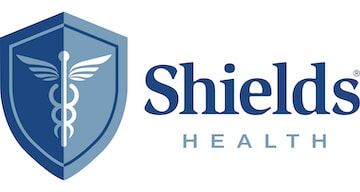PET/CT FAQ
Your PET/CT exam results may have a major impact on your physician’s diagnosis of a potential health problem. If the exam detects a disease, the results can also help manage your treatment and return to health.
A PET/CT study helps your physician predict the likely outcome of various therapeutic alternatives, pinpoint the best approach to treatment, and monitor your progress. Just ask your physician what he or she hopes to learn from your PET/CT exam.
- IMPORTANT NOTE: Preparation for your PET/CT imaging study is more critical than for other commonly performed imaging studies. Please follow these instructions exactly or your exam may need to be rescheduled.
- These are instructions for physical activity, medication and food and drink prior to your scan that must be followed carefully. If you eat or drink within 4 hours of your scan, please call us at 1-866-258-4738 to reschedule your exam. The exact timing of this scan is very important. Please arrive on time for your scan.
- Food and Drink
The exam requires a 4-hour fasting period; do not eat food or drink anything except plain water (no carbonation) 4 hours prior to the exam. Drink plenty of plain water (no carbonation) during the 4-hour fasting time and the day before your exam to ensure you are properly hydrated. No gum, candy or mints during the 4 hour fasting period. - Medications
Take your regularly scheduled medications with plain water (no carbonation) only. If your medications require you to take them with food please call our PET/CT scheduling team for guidance. - Diabetic Patients
If you take insulin, schedule your scan so that you will not need to take your insulin within 4 hours of your exam. Before the start of each exam a glucose measurement will be taken. Your blood sugar reading must be below 180 in order to move forward with the exam. All other anti-diabetic medications can be taken. - Physical Activity
Please limit physical activity 24 hours prior to your exam. This includes running, heavy lifting, sports, yoga, and deep massages. - Clothing
Dress in comfortable metal-free clothing. - Para la versión en Español haga clic aquí.
- CARDIAC PET/CT PATIENT PREP – CLICK HERE.
- Para la versión en Español haga clic aqui.
After receiving your history and copies of any prior exam results, the technologist will thoroughly review questions pertaining to your PET/CT exam. Upon completion of the interview process, you will receive a radiopharmaceutical injection that will be taken up by the cells in your body. We will ask you to remain seated and relaxed during the uptake period of 45 to 60 minutes. Then, the imaging sequence will resume. We will ask you to lie down on the imaging table and hold very still, because movement can interfere with the results. The scan can last anywhere from 15 to 25 minutes, and possibly more if the physician requests a need for additional information.
If you are here for a cardiac study, please be aware that the same process will take place; however, the imaging time will be anywhere from 10 to 15 minutes.
Plan to spend approximately two hours at your exam, which includes completing all necessary paperwork.
Unless you receive special instructions, you will be able to eat and drink immediately. Drinking lots of fluids will help flush the radiopharmaceutical out of your system over the next 24 hours. Proceed to take any medications as prescribed by your physician if need be. In the meantime, we will begin preparing the results for review by our diagnosticians, and then by your physician, who will tell you what we have learned.
After your scan:
- Drink plenty of fluids.
- As a precaution, avoid close contact with infants or with someone who is pregnant for at least eight hours after the scan.
- Please avoid airports, federal buildings, and areas of a hospital that may have a radiation detection system for 20 hours after the scan.
- Please inform the technologist if you have another nuclear medicine exam scheduled or have travel plans within 24 hours after your PET scan, as he or she can give you a PET study card identifying the procedure you had.
A PET/CT study is similar to many other diagnostic procedures, from CT to MRI and nuclear medicine. Although the radiation you receive is different, it is roughly equivalent to what you would receive from other diagnostic imaging exams, such as a nuclear medicine exam and CT.
Radiopharmaceuticals used in PET/CT do not remain in your system long. As a precaution, we recommend that you avoid close contact with infants or with someone who is pregnant for at least eight hours after the scan.
